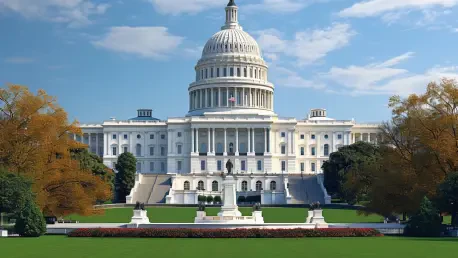A dramatic scene unfolds on Capitol Hill as House Republicans propose a monumental 50% funding cut to the Government Accountability Office (GAO), a move many perceive as a paradox, sparking widespread debate. One is prompted to ponder: Could diminishing resources for a government watchdog lead to greater inefficiencies within the system? This unexpected thrust into fiscal austerity has sent shockwaves through political circles, affecting everyone from policymakers to ordinary citizens concerned about transparency and efficiency.
Why This Matters
GAO plays a critical role in safeguarding government accountability, ensuring that federal programs operate with efficacy and transparency. Situated at the core of public sector oversight, the agency investigates and audits government spending, holding agencies accountable for their financial stewardship. This proposed budget cut threatens to erode the agency’s capabilities, fueling fears of unchecked governmental operations at a time when public demand for transparency remains high. In light of these circumstances, the stakes have never been more significant for those who prioritize protecting governmental integrity and efficiency.
The Appropriations Bill in Detail
Digging into the specifics of the appropriations bill reveals sweeping changes with potential longstanding impacts. The proposal entails a 5% overall budget decrease for various government agencies, with the GAO experiencing the most profound reduction. Previously driving significant financial efficiencies and savings for the government, GAO’s capacity to perform its duties could be severely hampered. Examples of past successful audits emphasize the gravity of these cuts, illustrating the tangible cost savings and operational improvements that stand to be compromised.
The Divergent Perspectives
Quotes from political figures and experts highlight the controversy surrounding this initiative. Rep. David Valadao has likened the decision to difficult yet necessary fiscal measures, arguing that such cuts are essential for the future viability of federal budgeting. Conversely, Rep. Adriano Espaillat lambasted the move, pointing to potential layoffs and its detrimental effect on GAO’s ability to conduct thorough investigations, especially concerning alleged fund impoundments. White House budget chief Russell Vought contributed to the discourse by expressing misgivings about the legality of certain GAO investigations, emphasizing ongoing reviews.
Navigating a Possible Path Forward
In light of potential shortfalls in oversight capabilities, stakeholders must consider adaptive strategies. Realigning priorities and leveraging technology could maintain a semblance of accountability amid reduced funding. Civic engagement and public discourse will play prominent roles in shaping future policies, empowering citizens to partake actively in governmental oversight discussions. By staying informed and participating in these dialogues, stakeholders can influence outcomes concerning government budgeting decisions critical to transparency and fairness.
The House Appropriations Committee’s move has placed governmental efficiency and transparency at the forefront of public discourse. As the landscape of federal accountability faces potential recalibration, avenues for public involvement have grown more crucial. The challenge lies in balancing resource allocations while maintaining rigorous oversight, an endeavor that requires concerted effort, public awareness, and proactive measures moving forward.









